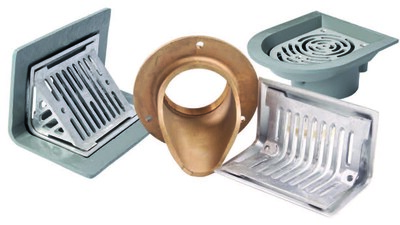Frost products contain components made from five metals that are subject to mandatory standards:
Stainless steel
BS EN 10088-1:2005 stipulates the use of Grade 1.4301 (304) stainless steel (316 if specified).
Grade 1.4301 (304) is typically specified for items used in direct food contact (saucepans, cutlery and sinks, for example) and food and pharmaceutical process engineering.
Grade 1.4301 (316) offers a higher degree of corrosion resistance due to its containing a minimum of 2% molybdenum.
Either way, it must have recyclable content averaging between 75% and 85%.
Nickel bronze
The tough oxide film of BS 1400 AB2 nickel bronze gives it excellent resistance to corrosion, cavitation and erosion in saltwater and chloride-containing environments. It is also highly resistant to wear and abrasion.
It must contain a minimum of 80% recycled material and be 100% recyclable.
Cast iron
The benefits of Grade EN-GJL-150 cast iron are its excellent dimensional stability and noise/vibration dampening properties. It must comply with BS EN 1561:1997 and be manufactured from 80-97% recycled materials and 100% recyclable.
Ductile cast iron
Offering greater strength and malleability than cast iron, this metal must comply with both BS EN 1563 and BS EN 1564, contain a minimum of 80% recycled material and be 100% recyclable.
Aluminium
Grade LM6 aluminium alloy offers average durability and strength combined with high-impact strength and ductility. It must comply with BS EN 1559-4:1999, contain no less than 90% recycled material and be 100% recyclable.
All Frost products are designed and manufactured in accordance with industry standards and regulations. To ensure consistent, ongoing compliance, we also operate a quality management system that is accredited to BS EN ISO9001:2008.

Written by
Vicki James
Sales & Marketing Coordinator
Vicki is a vital part of the marketing team; from reporting to copywriting, she ensures we complete projects on time.

